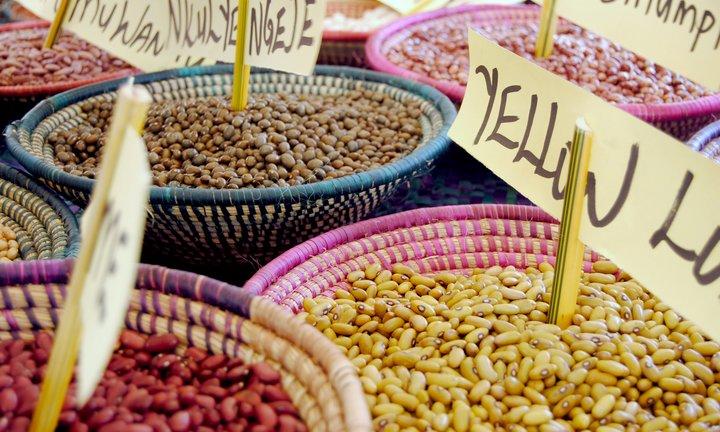Access and benefit sharing of genetic resources – making it work for family farmers

A new special issue of Farming Matters, produced in collaboration with Bioversity International, focuses on how access and benefit sharing of plant genetic resources can work for family farmers.
Crop diversity is essential for family farmers. It provides a cost-effective way to improve productivity, manage crop pests and diseases and adapt to climatic and other shocks. It also provides diverse, healthy and nutritious diets.
Farmers have safeguarded this rich biodiversity through saving, using, exchanging and selling seed and planting material. The rights of farmers to continue to do so are at the core of the International Treaty on Plant Genetic Resources for Food and Agriculture, an international agreement designed to facilitate the exchange of plant genetic resources. The Treaty also focuses on the right of farmers to participate in decision-making and in the fair and equitable sharing of benefits arising from the use of plant genetic resources and the need to protect traditional knowledge relevant to these resources. The effective implementation of the Treaty and other access and benefit-sharing agreements, however, represents challenges.
A new special issue of Farming Matters, produced in collaboration with Bioversity International, edited by Robin Pistorius, Janneke Bruil and Ronnie Vernooy, provides inspiring examples of formal and informal access and benefit-sharing systems from Costa Rica, Brazil, Iran, China, Uganda, Zimbabwe, and many more countries. The issue also explores the interface between the formal and the informal systems.
“We hope that the case studies and lessons learned presented in this publication will inspire and help policy actors, scientists and practitioners to develop similarly effective access and benefit-sharing arrangements in the future,” said Michael Halewood, Head of the Bioversity International policy team that collaborated on this special issue.
Download the full issue of Farming Matters or see below for individual case studies.
'Access and benefit sharing of genetic resources for family farmers. Theory and practice'
Robin Pistorius
'Improving access to vegetable seeds for resilient family farms in Costa Rica'
Lindsey Hethcote, Maarten van Zonneveld, William Solano, V. Ernesto Méndez and Nelly Vasquez
'Access and benefit sharing in participatory plant breeding in Southwest China'
Yiching Song, Zhang Yanyan, Xin Song and Ronnie Vernooy
'Evolutionary populations: Living gene banks in farmers’ fields in Iran'
Maryam Rahmanian, Maede Salimi, Khadija Razavi, Reza Haghparast, Salvatore Ceccarelli and Ali Razmkhah
'Seed banks and national policy in Brazil'
Paulo Petersen, Gabriel Fernandes, Luciano Silveira and Emanoel Dias
'Potato breeding in the Netherlands: successful collaboration between farmers and commercial breeders'
Conny Almekinders, Loes Mertens, Jan van Loon and Edith Lammerts van Bueren
'Implementing access and benefit sharing in eight countries'
Ronnie Vernooy, Michael Halewood, Isabel López-Noriega, Gloria Otieno, Isabel Lapeña, Raymond Vodohue and Guy Bessette
'The ABS system could be a thousand times simpler'
Robin Pistorius interviews Francois Meienberg
'Industry benefits but does not pay its dues. Patents are an assault on genetic resources'
Guy Kastler
'Lessons for access and benefit sharing from community seed banks in India'
Vanaja Ramprasad and Amelia Clements
'Giving new life to peasant seeds in Ecuador'
Ross Mary Borja and Pedro J. Oyarzún
'Looking outside the box. Access and benefit sharing for family farmers in Zimbabwe'
Bram de Jonge, Andrew Mushita and Patrick Kasasa
'Learning from farmer-led access and benefit sharing'
Robin Pistorius, Janneke Bruil and Ronnie Vernooy
__________________
Photo: Seed fair in Nakaseke, Uganda, to raise awareness of traditional varieties of beans.
Please credit: Bioversity International/I.Lopez-Noriega
